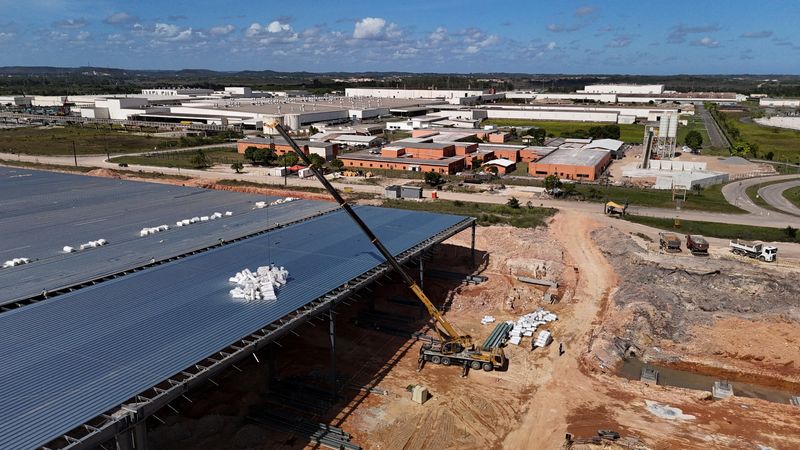SHANGHAI (Reuters) – China's Jinjiang Group is in the spotlight after Brazilian labor authorities said workers at a factory it is building for electric vehicle maker BYD were victims of human trafficking and worked in “slavery-like conditions.”
Jinjiang has denied allegations of workers in slavery-like conditions and did not respond to a request for comment on the human trafficking allegation. The Chinese Foreign Ministry said it was a communication with Brazil and that China requires Chinese companies to operate in accordance with the law.
Find out more about Jinjiang Group here:
Trusted news and daily delights straight to your inbox
See for yourself – The Yodel is your destination for daily news, entertainment and feel-good stories.
THE COMPANY
The privately held Jinjiang company – the name means “gold craftsman” – was founded in 2002 and is qualified to provide real estate construction services. The headquarters are in Shenzhen, the southern Chinese city that is also home to BYD.
Chairman Ma Jianbin's alma mater, Sichuan College of Architectural Technology, posted on social media in 2021 that Jinjiang had 1,500 employees and annual sales of 3 billion yuan ($400 million).
In addition to BYD, its main customers also include Chinese real estate developers such as Vanke, Longfor and Country Garden, the article says.
Jinjiang is controlled by Ma Jianwei, whose personal information is not available, according to records in the Chinese corporate database Tianyancha.
JINJIANG'S WORK FOR BYD
In addition to the factory in Brazil, Jinjiang is working on building BYD factories across China in cities such as Changzhou, Yangzhou and Hefei, according to records on Tianyancha and job postings on Chinese websites and social media.
Jinjiang was looking for workers to build BYD's factories in Xian, Shaanxi and Zhengzhou, according to job postings posted by recruiters on messaging app WeChat last month.
The company helped BYD build its Skyrail monorail system in China, according to local government data.
Reuters could not determine whether Jinjiang was working on BYD projects in Hungary, Mexico, Thailand and Uzbekistan, but job advertisements for the company show it is hiring for various positions in Hungary, including forklift drivers and logistics specialists.
Jinjiang is recruiting hydraulic and steel engineers in Turkey as well as translators for Turkish, Spanish, Portuguese and Hungarian, according to posts that do not mention BYD.
OCCUPATIONAL SAFETY RECORD
According to Tianyancha, Jinjiang was ordered by Chinese courts to compensate workers in five industrial accident and injury disputes from 2018 to 2022.
According to the database, the company was fined for violating occupational health and safety regulations in three cases in 2023 and 2024.
A criminal record also showed that a worker died in a falling accident at a BYD construction site in Hefei in May 2022. Jinjiang, the project's main contractor, was fined 310,000 yuan by local authorities in 2023 along with two subcontractors for failing to implement safety measures.
JINJIANG, BYD RESPONDS TO BRAZIL'S CLAIMS
Jinjiang said on its Weibo account that the depiction of the workers as “enslaved” was inaccurate and there had been misunderstandings in translation.
A video was released of a group of Chinese workers, one of whom read on camera a letter that Jinjiang said the workers had signed together, saying that claiming they had been rescued insulted their dignity.
The unidentified workers said they were shocked at the possibility that they could be sent home and said they wanted to keep their jobs and continue working in Brazil.
BYD initially said it had severed ties with Jinjiang, but Jinjiang's Chinese statement was later reposted online by a BYD executive who accused “foreign forces” and some Chinese media outlets of “deliberately denigrating Chinese brands and the country and relations.” between China and Brazil.” .
Brazil's labor prosecutor said BYD and Jinjiang agreed to support the 163 workers and house them in hotels until an agreement was reached to end their contracts.
($1 = 7.2992 Chinese Yuan Renminbi)
(Reporting by Shanghai and Beijing Newsrooms; Editing by William Mallard)
